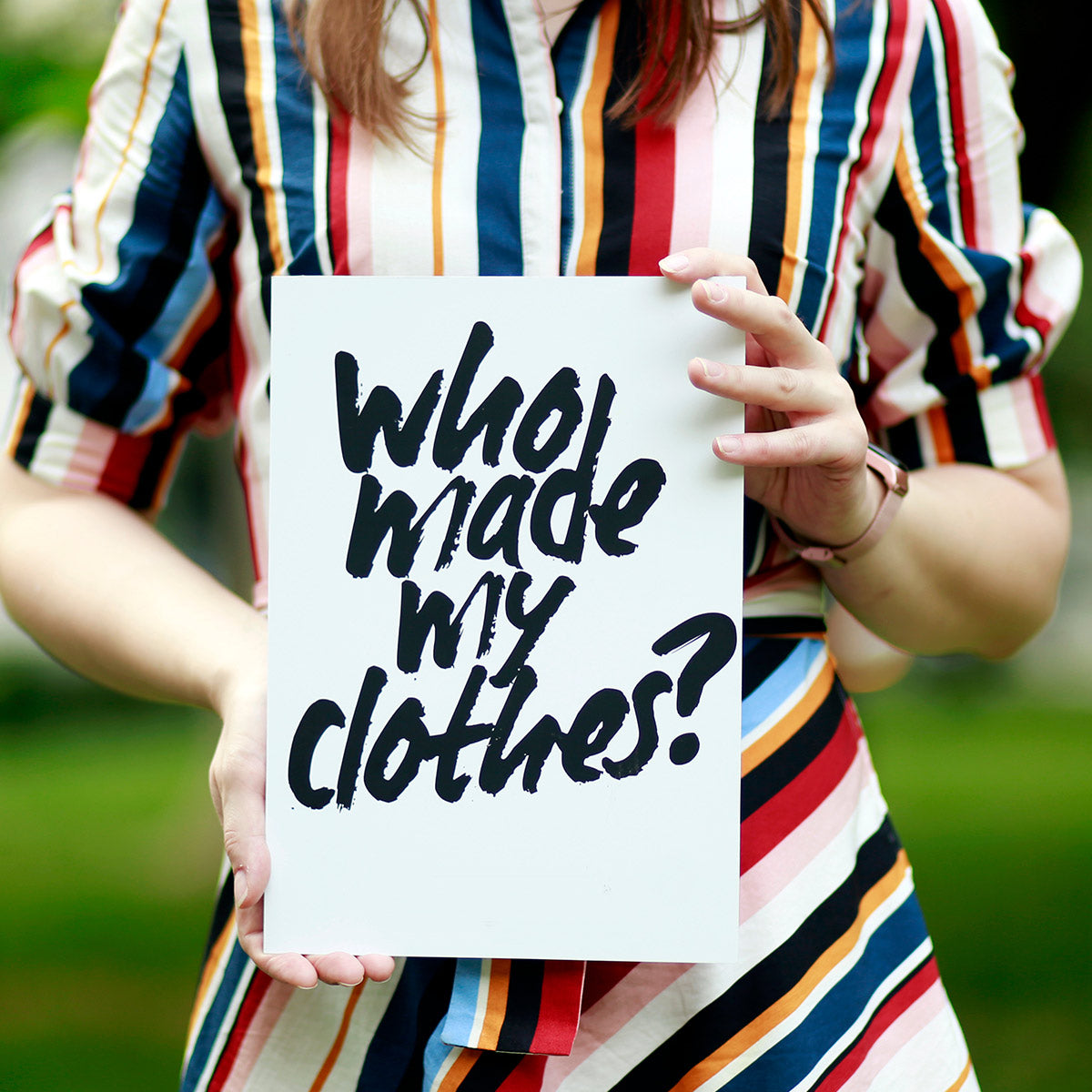No Products in the Cart

This year’s #fashionrevolutionweek marks the 10 year anniversary of the Rana Plaza Collapse, where 1134 people tragically died while working in unsafe conditions in a factory in Bangladesh. As an ethical brand and small business, we are taking this opportunity to encourage everyone to call on big businesses, brands and manufacturers to do better by the people who make the products we use every day, after ten years of limited progress and a plethora of excuses from some of the worst offenders. This week, we encourage everyone to write/email/post on socials and ask brands '#whomademyclothes?’.

MG/B - #BareforGood
Every year MGB runs our #bareforgood campaign to draw attention to the issues facing the fashion industry. This year we are instead focusing on our manufacturing partners, and their ongoing commitment to protecting the rights of workers. We hope that by putting the human rights and voices of workers at the forefront of what we do, we can encourage other brands to do the same, and prompt consumers to consider the human impacts of their consumption. We know many of you are already committed to living more ethically, so we hope that this year, seeing the faces of some of the people behind our products helps us all to come together to hold brands accountable, interrogate greenwashing and support change across the industry.
You can view our past #BareforGood campaigns here.
Our Partner - RCM in Focus
Rajlakshmi Cotton Mills (RCM) is internationally regarded as one of the world’s most ethical producers and pride themselves on raising the bar for ethical standards, by going above and beyond certification requirements and exceeding the International Labour Organisation work standards - putting people at the heart of their operations.

The State of the Industry
After the tragic Rana Plaza disaster, an international accord on fire and building safety was established and a compensation fund set up for the victims, which formed the foundation for the Pakistan Accord, which broadened these aims. However, the positive impacts and intentions behind these actions are eclipsed by the ongoing, routine abuses of international work standards and human rights, inflicted by manufacturers for some of the biggest, most popular fashion brands around the world, fuelled by greenwashing, denial of accountability, refusal to cooperate with workers, and huge lack of transparency. For more information, see these reports by the Guardian and Earth.org
What to do
Shop ethical! Use platforms like Good On You , Baptist World Aid Australia and Fairtrade Australia & New Zealand to understand the ethical credentials of your favourite brands, verified by a third party.
Write to brands requesting details of the conditions of workers, location of factories, and social and environmental safeguards, as well as voluntary and mandated reporting on these issues. Don’t hear back, or get a sufficient answer? Share with friends and your audience on social media or directly, so we can create a community of ethical consumers!
Write to your local MP to request they consider advocating for stronger requirements on local and international brands to report the social and environmental cost of their business, and that there are mechanisms for holding brands accountable.
Follow, share and commit publicly and personally to only purchasing ethically, where your circumstances allow, and highlighting the lives of the people at the core of the movement.